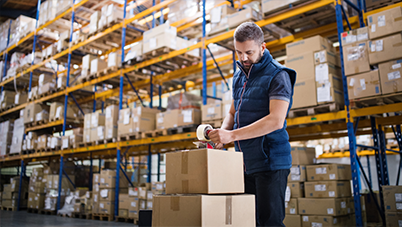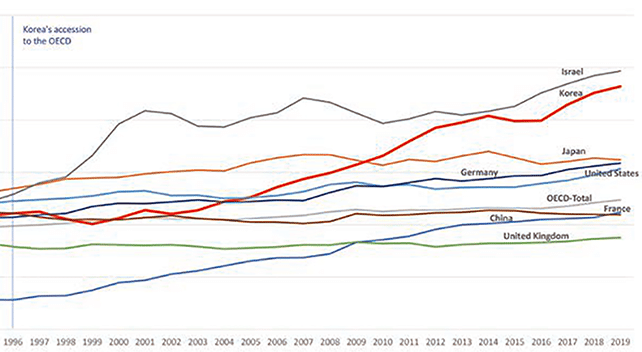Leveraging AI on Supply Chain and its effect

Cloud Computing Today and Beyond
December 10, 2021
DOJ Antitrust Division tightens leniency requirements
April 19, 2022
There is seemingly no limit to the applications for Artificial Intelligence and to the great expectations (or potential threats) that many tech and business leaders have predicted for its applications. In July of 2021 Google CEO Sundar Pinchai reiterated his belief that the effects and use of AI will be more profound on the history of humanity than fire or electricity, and Tesla founder Elon Musk has warned that AI could lead to the next world war. Nuclear fission is a common comparison among commentators, both in AI’s potential uses and potential dangers.
Adopting AI in the Logistic Industry
But the future is now, and AI is being used in various applications including key areas that are directly relevant to current events such as supply-chain analysis. Supply chain issues have been in the news recently because of the extreme weather and pandemic related disruptions that have significantly increased shipping costs and made it more difficult for companies to obtain the raw materials needed to create their products. It’s more difficult for consumers to get the things they want and inflation in the U.S. is at the highest level it’s been in the last 13 years. As AI is increasingly used in the logistics space, it could lead to a solution.
By processing huge amounts of data, AI allows companies to make more efficient decisions on issues such as warehouse management, route optimization, and demand forecasting. By making every step of the supply chain as efficient as possible, companies cut down on costs and increase speed and accuracy. Companies can also use AI to enhance communication within all members that contribute to the supply chain and keep the network organized and aware of issues ahead of time.
Over 60% reported their revenue growth due to efficiency gains brought by AI
According to a survey by McKinsey conducted in 2019, 61% of executives reported decreased costs and 63% reported increased revenues as a result of introducing AI into their supply chains, and those numbers are likely to grow even higher over the next several years. A 2018 study conducted by market research company Infoholic predicted that “the Artificial Intelligence market in logistics is predicted to grow at a CAGR of 42.9% over 2017-2023 to reach $6.5 billion by 2023.”
FROTNEO can support strategic planning related to economic security through its network analysis system "Seizu Analysis," which is equipped with the economic security field AI "Looca Cross".
Nishimura & Asahi and FRONTEO hold "Economic Security Initiative”
https://legal.fronteousa.com/2022/02/07/economic-security-initiative/
- Source: https://www.mckinsey.com/featured-insights/artificial-intelligence/global-ai-survey-ai-proves-its-worth-but-few-scale-impact. Accessed November 17, 2021.
- Source: https://www.forbes.com/sites/markminevich/2021/11/05/can-artificial-intelligence-save-america-from-the-global-supply-chain-disaster/?sh=4e3c5323b693. Accessed November 17, 2021.
- Source: https://thehill.com/opinion/technology/581460-is-artificial-intelligence-more-formidable-than-nuclear-weapons?rl=1. Accessed November 17, 2021.
- Source: https://www.supplychainbrain.com/blogs/1-think-tank/post/32330-how-ai-is-transforming-global-supply-chains. Accessed November 17, 2021.
- Source: https://www.infoholicresearch.com/report/artificial-intelligence-in-logistics-market-forecasts-to-2023/?utm_source=datarootlabs&utm_medium=blog. Accessed November 17, 2021.
- Source: https://www.bbc.co.uk/sounds/play/p09nxhrd. Accessed November 17, 2021.
経済安全保障分野でのAI活用が注目されています。倉庫管理、ルート最適化、需要予測などの課題にAI分析を用いることでコスト削減とスピード・精度アップにつながります。
2019年の調査によるとサプライチェーンにAIを導入した経営者の6割以上がコスト削減および収益増加に効果があったと認めており、今後もさらにこの分野でのAI活用が進んでいくと見られています。FROTNEOも経済安全保障分野AI「Looca Cross」を搭載したネットワーク解析システム「Seizu Analysis」を通じて経済安全保障にまつわる戦略立案に向けた意思決定を支援してまいります。
FRONTEO プレスリリース 西村あさひ法律事務所とFRONTEO、 「経済安全保障イニシアチブ」を開催
https://www.fronteo.com/20220202?_ga=2.96262236.1190662773.1643614629-2133644530.1641867718




